What a holler would ensue if people had to pay the minister as much to marry them as they have to pay a lawyer to get them a divorce. |
|
FRIDAY: My Book World | John Sedgwick's From the River to the Sea: The Untold Story of the Railroad War That Made The West
0 Comments
My Book World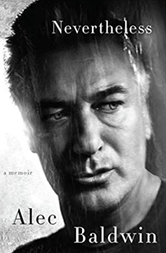 Baldwin, Alec. Nevertheless: A Memoir. New York: HarperCollins, 2017. In some ways this is an ordinary celebrity book. Baldwin writes about his acting career, his divorce from a famous actor, his new wife and family, and all his children. But Alec Baldwin also distinguishes himself by sharing how he comes to be an actor. In his preface he tells of his childhood, of wanting to be something one day and something else the next day. Acting allows him to become, in a sense, all of these things through the roles he plays. He also shares with readers about how his childhood of near destitution (his mother and five siblings living on their father’s teaching salary). Most interesting, however, is his quest to find himself, to be true to his desire to balance himself on that fine tightrope of acting for its own sake (the stage, the Broadway stage) and film (its commercial and sometimes lucrative nature). He glosses long lists of books he loves, plays and films he loves, actors (male and female) whom he loves and why. He peppers his writing with pieces of classical music he admires—a sign of a truly educated person. Baldwin's is a rich life of pursuing happiness and sometimes coming up short but also getting up off the floor and trying again, whether to connect with a new woman or say yes to a new play or tackle the fields of philanthropy or politics. The man is that bright and that secure that he can make these choices and live with them. Because, in his youth, he is soooo good looking (the only reason I watched TV’s Knot’s Landing), he is sometimes approached or accosted by gay men who believe they might get lucky. To Baldwin’s credit, he is secure enough in his personhood, his masculinity, that he (by his own recognizance anyway) takes these incidents in stride (informing one man, an older mentor, however, that if he ever kisses him full on the mouth again, he will break every bone in his body—yet they do remain friends). He even goes as far as to say he “loves” a certain man he’s worked with and who knows? “he might be gay.” We know he isn’t, but it’s sweet of him to be so empathic that he might give it some consideration. That seems to be what his whole life is about: giving a role consideration before dispensing with it or forging ahead. We all should be so considerate in our own roles. NEXT FRIDAY: My Book World | Will Brandon's The Wolf Hunt: A Tale of the Texas Badlands. A Derrick Miles Mystery
My Book World Langella, Frank. Dropped Names: Famous Men and Women as I Knew Them. New York: Harper, 2013. In Langella’s “Cast of Characters”—notable people he has known throughout his long acting career—he lists them in the order of their “disappearance” from the earth. The first personality is Marilyn Monroe, whom he “meets” in a fortuitous incident as a kid in which he exchanges waves with the woman as she enters a limousine. Further in to the book Langella describes his relationship with John F. Kennedy. This episode also begins his relationship with Paul and Bunny Mellon and their daughter whom he has met first by way of his youthful thespian activities in summer stock. Many of his acquaintances, like these, wash back and forth over one another until he ends his book by way of his long friendship with Bunny Mellon who lives to be 103. Langella is at turns generous and blunt about the talents of these people. With Rita Hayworth he can’t possibly heap the praise high enough. By his account, Bette Davis is an arrogant bitch. Raul Julia is a prince, almost a brother to Frank. Paul Newman is a so-so actor who can’t quite reach down deep enough in to himself to grab the stuff of which great acting is made. The book is also one of confession. Langella, throughout his life, though retaining threads of friendship with hundreds of people, manages to let other relationships fall off. In a stunning chapter, one learns of Elizabeth Taylor’s deep insecurities, about living out her life alone. He tells of his own arrogance when he treats British actor Deborah Kerr dismissively over a long period of time—until it is too late. If readers are to learn anything from Langella’s book it may be that no matter what road we take in life, we owe a debt of gratitude to those who have helped us along the way; it behooves us to help the sick and needy; and it pays to be kind and polite to nearly everyone, saving the stinging but measured remark for the few who may deserve it. The book is now over a decade old, but the content is timeless. NEXT FRIDAY: My Book World | Martin Amis's Inside Story
My Book World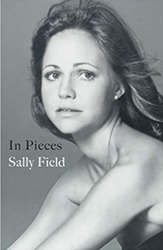 Field, Sally. In Pieces: A Memoir. New York: Grand Central, 2018. Many celebrity memoirs or autobiographies seem to read as if the author has recorded his or her story and transcribed it word for word—with little benefit of revision or constructive editing. Not so with Sally Field. The arc of her narrative advances from one point of tension to the next until the climax splatters on the page like a scene from one of her films. In making herself vulnerable to all the revealed truths of her life, she encourages readers to acknowledge their own truths, and because of this honesty readers are willing to forgive her her foibles. Even if Field does not possess a degree from an accredited institution (a lifetime regret on her part), she creates prose that stands up to that of any fine writer. Moreover, she does a superb job of connecting the emotional DNA from great-grandmother to grandmother to mother to Sally. She quotes from Jung as her touchstone: “‘Nothing has a stronger influence psychologically on their environment and especially on their children than the unlived life of the parent’” (29) That both her mother and stepfather are failed actors (in the sense that they cannot sustain lifelong careers) contributes to how they relate to Sally as the child. The public may be tempted to believe that because one is offered a TV series at age eighteen said actor has it made for the rest of her life. Not so. Field makes plain how actors for many years may live from hand to mouth—without health insurance, without home ownership, sometimes without food for themselves or families. Not only do Sally’s parents experience these pitfalls, but so does she. As the star of Gidget, she is suddenly supporting her parents and siblings, because both her parents are at low points their own careers. And the path never gets easier. One might be paid quite well for one film but then the next project is not in sight, and an actor must stretch that income until something does come along. Moreover, Field has her own children and spouse to support, at times repeating the pattern of living she has grown up with. But the story of Field’s acting career is only one strand of her memoir. She shares the most intimate parts of her life which help to illuminate who she is as an actor. I am reminded of her titular role in Norma Rae, when she stomps up onto a table and unites laborers where she works, and it is not difficult to believe that Field gains her power from a very real scene transpiring with her stepfather, one of the most dramatic scenes from the book. Sally is fifteen, both her mother and stepfather, Jocko, are drunk, and he picks a fight with Sally, informing her she’s a smart-ass, that he knows her inside and out, and she denies that he knows anything about her: “The room turned red, bright blazing red. I rose from where I sat perched on the edge of my childhood, rose up through years of fear, fury, and longing, of confusion and love. I stepped onto the coffee table and there we were again, eye-to-eye, nose-to nose. Wow. That page and a half stuns me. I suddenly see, perhaps, (for who knows where it emanates from) the power Field draws from to act, to create the memorable characters that she has for decades—the place inside her where she must retreat again and again, mining emotional truth to create honest and vibrant characters. As I said, Wow. Field’s memoir continues at this pace until the very end, in which she reaches resolution about a very key event from her childhood, one through which the reader can view Sally Field as a whole, integrated person, one who has more than earned what one might call happiness.
NEXT TIME: My Journey of States-37 New Hampshire |
AUTHOR
Richard Jespers is a writer living in Lubbock, Texas, USA. See my profile at Author Central:
http://amazon.com/author/rjespers Archives
June 2024
Categories
All
Blogroll
Websites
|
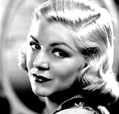
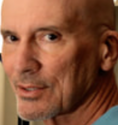

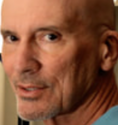

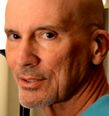
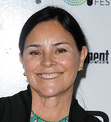

 RSS Feed
RSS Feed